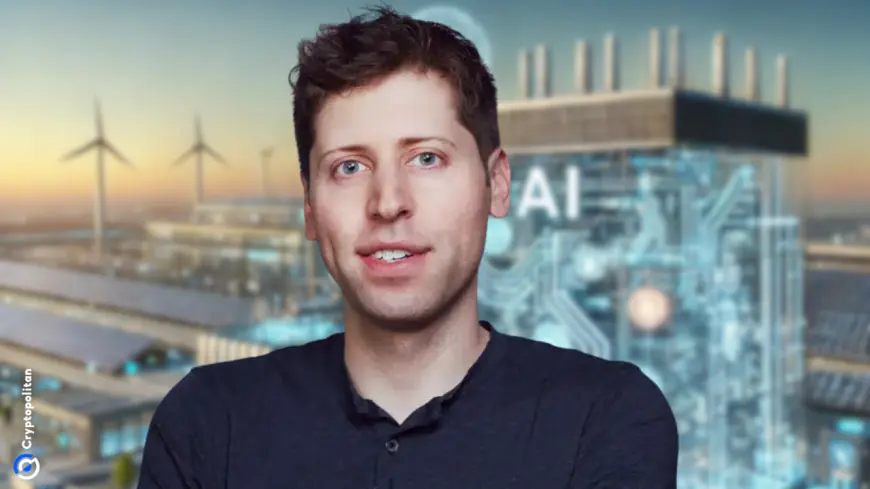Sam Altman-led nuclear start-up signs major AI power supply deal amid OpenAI court cases
Oklo, a nuclear energy start-up led by OpenAI’s Sam Altman, has secured a significant corporate power supply. Despite the OpenAI case that Sam Altman is currently facing, he continues to make significant decisions. The deal is a 20-year agreement with Switch Inc., a privately held data center operator. According to reports, Oklo will build nuclear […]

Oklo, a nuclear energy start-up led by OpenAI’s Sam Altman, has secured a significant corporate power supply. Despite the OpenAI case that Sam Altman is currently facing, he continues to make significant decisions.
The deal is a 20-year agreement with Switch Inc., a privately held data center operator. According to reports, Oklo will build nuclear reactors called the Aurora powerhouse with a combined capacity of 12 gigawatts by 2044.
According to the US Nuclear Regulatory Commission, each Aurora Powerhouse reactor can generate a maximum of 15 megawatts of electricity. This amount of energy is sufficient to power all 7.6 million households in New York state.
Oklo said that the deal doesn’t have any legal force. Jacob DeWitte, Oklo’s co-founder and chief executive reported that the transaction could be valued at multiple billions of dollars if binding terms are achieved.
Oklo initiative- Details
Oklo is in the process of creating small modular reactors, which are advanced nuclear plants with a capacity of 300 megawatts or less. These reactors are approximately one-third the size of standard facilities.
Jacob DeWitt asserted that nuclear energy was the sole source of energy that could sustainably satisfy the substantial energy requirements of the AI revolution.
However, he downplayed the concerns of critics regarding the inherent risks of nuclear energy, which has been subject to delays and cost overruns and is highly regulated.
He said, “We are entering a new world due to the size of the energy demand(…) You can’t do it with renewables, as you would need a lot of gas back-up capacity, and a lot of folks want a clean solution.”
In addition, Oklo is aiming to deploy its first 15MW reactor by late 2027 at the Idaho National Laboratory.
On the other hand, Amazon and Google have recently executed power agreements with X-energy and Kairos Power, two nuclear developers located in the United States, to supply their data centers with low-carbon electricity.
In September, Microsoft also entered into a corporate power agreement with Constellation Energy, which will result in the reactivation of the Three Mile Island nuclear facility in Pennsylvania.
Nuclear crops are coming up more. Still, some analysts are skeptical that the new crop of nuclear start-ups will ever deliver.
Edwin Lyman, nuclear power safety director for the Union of Concerned Scientists, explained his doubts, “These agreements do not appear to be the kinds of serious, substantial, and sustained financial commitments on the order of many billions of dollars over decades that would be necessary to fully realize these speculative nuclear projects.”
The OpenAI Court cases
The New York Times(NYT) filed a lawsuit against OpenAI, alleging that the AI startup has used “millions” of articles published by the newspaper without permission to train its popular ChatGPT model.
OpenAI publicly responded to the allegations in the NYT’s complaint, stating that the suit is “without merit” and that “memorizing” and “regurgitating” near exact copies or substantial portions of published works is uncommon.
OpenAI further stated that the prompts employed by NYT to generate outputs that closely resemble the published NYT articles used as exhibits were deliberately manipulated and already contained substantial portions of the articles.
Also, the main news organizations in Canada filed a lawsuit against the technology firm OpenAI for potentially billions of dollars. The lawsuit alleged that the company was “strip-mining journalism” and unjustly enriching itself by using news articles to train its popular ChatGPT software.
The suit was filed at Ontario’s superior court of justice, seeking punitive damages, and a portion of the profits generated by OpenAI from the use of the news organizations’ articles.
In addition, Silverman filed a comparable copyright class action lawsuit against OpenAI in a federal district court in California. The lawsuit alleged, among other things, that OpenAI had copied copyrighted works to train AI large-language models.
Sam Altman said he is not worried about Elon Musk — his former partner in founding OpenAI — and President-elect Trump hurting his business. Follow our live coverage from the DealBook Summit here: https://t.co/uTsyyH00xC pic.twitter.com/87Fjsog8Jd
— The New York Times (@nytimes) December 4, 2024
Finally, Elon Musk has recently reopened a new litigation in which he alleges that Altman “manipulated” him into co-founding OpenAI. However, Sam Altman said that he is not worried about Musk.
From Zero to Web3 Pro: Your 90-Day Career Launch Plan
What's Your Reaction?









































































































